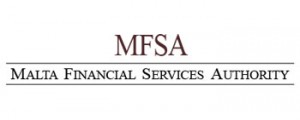
The Malta Financial Services Authority (MFSA), has issued a notice regarding applicants for Category 2 or Category 3 Investment Licences that allow firms to offer online Forex trading services on the Mediterranean island.
Following a string of risk warnings and concerned regulators across the EU alerting retail investors to the risks in Forex Trading , the MFSA is sharply updating criteria for the licensing of entities wanting to offer margin foreign exchange services. In a statement, the MFSA said, "The high risks associated with forex trading by retail investors due to the reliance on automated systems, the complex nature of forex products and the accessibility to such products by retail investors, have also led to a further tightening of the licensing criteria".
Spot the Difference
One of the changes for new Category 2 or 3 Investment Services Licence applicants (engaging in forex trading) is the MFSA will “only accept license applications if at least one entity holding a direct qualifying shareholding in the applicant is already regulated in the provision of financial services to a level which is satisfactory to the MFSA”. In other words, new applicants must be regulated in an alternative region as a bare minimum. The MFSA is also calling for “active participation in the management of the proposed entity by the qualifying shareholders”.
The MFSA lists the applicant's shareholding structure as well as the quality and track record of the proposed management team as factors for consideration. Promoters should demonstrate several years of competence with reputable institutions, target market and the applicant's clients.
To deter illegitimate sources of funding, the MFSA “reserves the right to request a promoter (who is also the ultimate beneficial owner of the applicant) to provide it with a statement of wealth”. A measure designed to tackle the increasing amount of unaccounted and/or unidentified capital flowing in and out of Malta.
The Maltese Authority has also introduced a higher capital requirement of €730,000 and expects that the core licensable activities of licence holders that provide online forex trading are performed in and from Malta. Clearly, the MFSA’s capital requirement and shareholding rules are designed to discourage illegitimate or inactive firms.
The incoming rules state that “The Board of Directors of an online forex trading firm should include one or more independent directors” that have the necessary competence and experience in forex trading who would be able to “question and challenge the activities of the executive directors and senior management”.
The regulator also warns on the topic of staffing levels, “The licence holder shall only be authorised by the Authority to commence its business as an online forex trading firm if it has the requisite number of personnel in place that will ensure compliance with the dual control principle on an ongoing basis”. Adding, “The Authority does not accept operational set-ups whereby the licensable activities, as well as the key functions of the licence holder, are concentrated in one individual”.
The new, tougher rules affect only new applications made as of October 20th. Existing applications submitted before are exempt from the incoming Shareholding Structure and Capital Requirements guidelines but must meet all other requirements.












